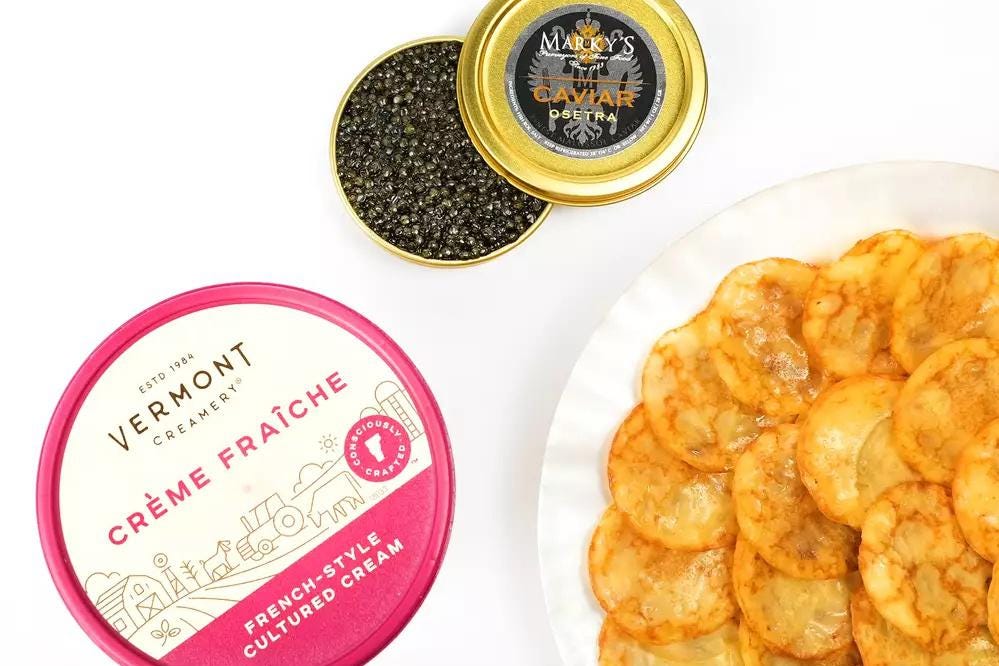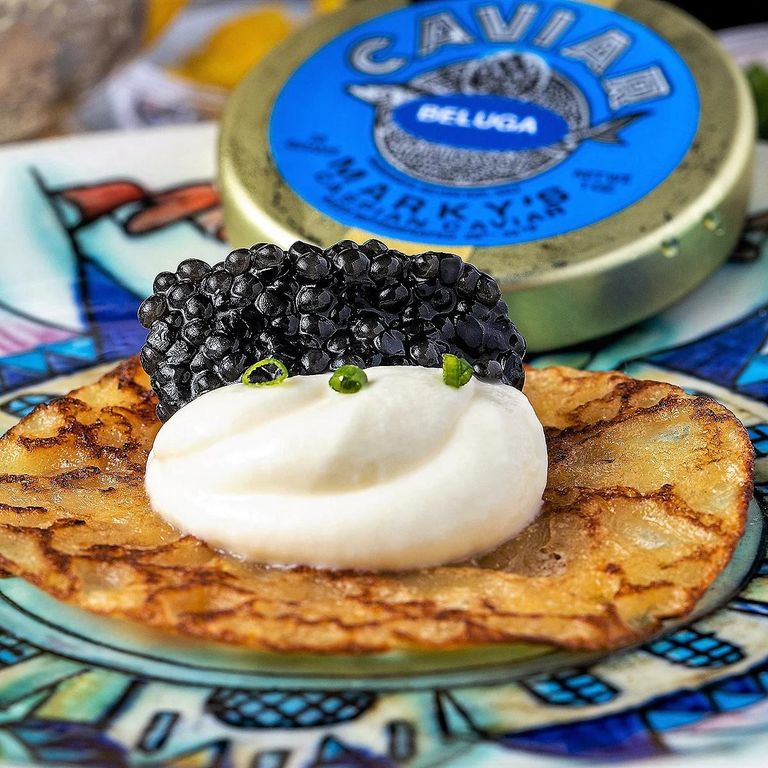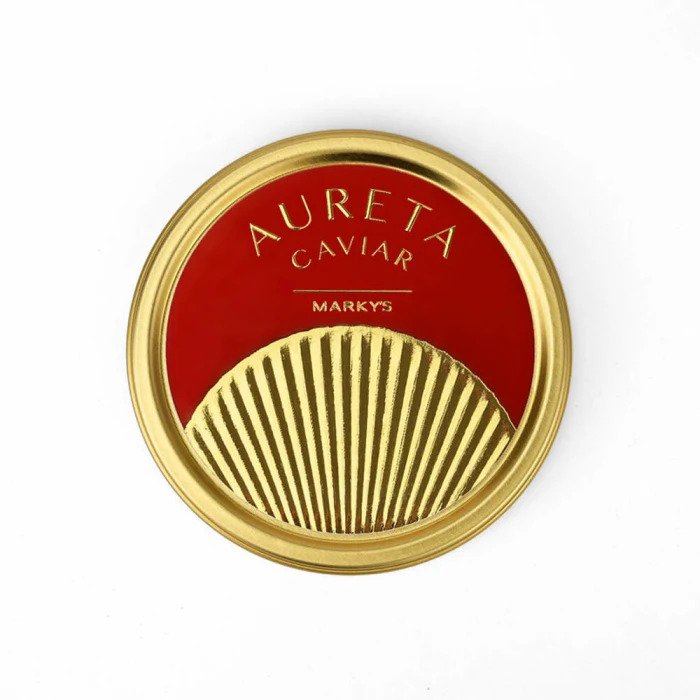The reigning “Top Chef” winner talks about what made him want to return for the current “World All-Stars” season and the reputation that precedes him in the kitchen.
Category : Food Stories, Party Ideas, Recipes, Press Room |
Posted : Mar 9, 2023
It’s about a week before Top Chef’s 20th season premiere, and Buddha Lo is taking a break from his busy schedule as executive chef of New York City’s HŪSO, a “12-seat caviar speakeasy” that currently has a waitlist more than 3,000 people long. Many of those diners are lining up precisely because of Lo’s status as winner of the reality competition show’s previous season, in which he wowed judges Tom Colicchio, Padma Lakshmi, and Gail Simmons with an unapologetically elevated finale meal, which included—you guessed it—caviar. It’s the type of pressure that the Chinese-Australian chef has been preparing for his entire career.
So when Lo got the call to come back on the show for Season 20 so soon after his victory, he was “screaming yes” in his head before the actual words came out of his mouth. Ten seconds into explaining the offer to his wife, Rebekah Pedler—an accomplished pastry sous chef at Eleven Madison Park—she told him, “You’ve got to do it.”
As Lo explained to The Daily Beast, he felt like he had more of himself to give to the cooking competition, which kicks off its World All-Stars season in London this Thursday, March 9th at 9 p.m. on Bravo (and streaming on Peacock) before heading to Paris for the final rounds in the coming weeks. It’s the Emmy-winning series’ most competitive season yet, pitting winners and finalists from various international iterations of Top Chef against each other for the $250,000 prize and worldwide bragging rights.
“I guess I’m just crazily obsessed with it,” Lo admits, insisting that he would be happy to compete even if there were no cameras filming him. “It’s the ultimate playground, where you just cook and you don’t even have to tidy up afterward,” he adds. “This is a completely different style of cooking where you don’t have to worry about the customer, the clientele, or whether people are going to enjoy it around your neighborhood or if you’ve promoted it enough on social media. You’re just free.”
Below is an edited and condensed version of our conversation.
You’re the only winner of U.S. Top Chef on this new season. But there are several other winners from their home countries. How did the competition compare?
The competition is huge. It’s like soccer in the U.S. You can win the championship in America, but then you go to FIFA and you’re against Spain, Germany, France, Italy, England, Thailand. So that’s what you have to compare to. The skill level is incredible, as you would expect.
Have you gotten a chance to see the season premiere yet?
No, I have not watched it yet, but I can imagine it was probably one of the funniest episodes of the season because we got pretty drunk in the stew room.
I don’t want to spoil anything for you, but I wanted to ask about one moment from the first episode. You immediately have to team up in pairs for the quickfire challenge, and in the interviews, we hear your partner [Top Chef Poland winner Sylwia Stachyra] refer to you as a “food snob.”
A “food snob”? I don’t know, I guess everyone has “first impressions” of everyone. But yeah, you can call me what you want, it’s the game, you know? I think a lot of people, when they get to know me—even my wife had that sort of impression when she first met me—and then when they really start to uncover things, they realize there’s a lot more to me than that. That’s what’s also very hard to convey on Top Chef. As much as you want to be able to show that you can do all these different things, you end up having to do it in the most technical, best, creative, mind-bending way. Because you can cook fried rice whenever you want, and it’ll probably be amazing, but you’re gambling by cooking fried rice in a challenge, which will probably send you home because someone’s going to go, “Well, you just cooked fried rice.” But for me, I’ve been cooking fried rice since I’m 12 years old. I’ve worked in a Chinese restaurant. But you don’t get to see those different aspects of me. I love cooking a lot more than fine-dining food. It’s just where I’m at in my career and what I find the most challenging. So I could see how she could see me like that, but I still love her.
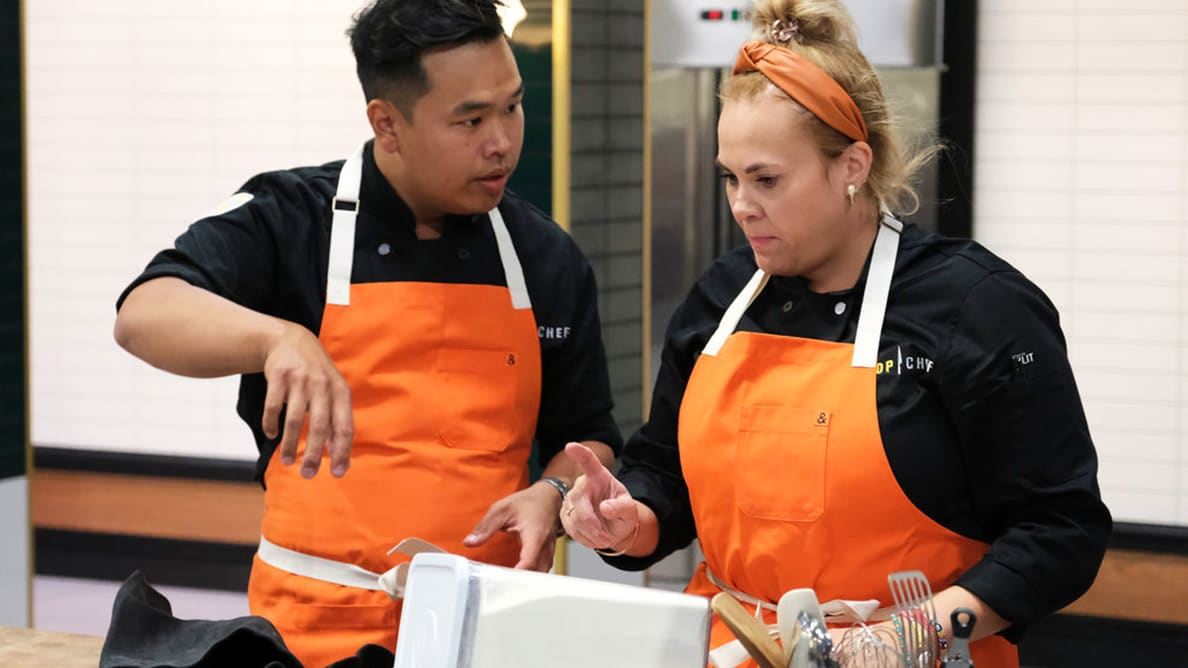
The reality now is that the show has been on for so long that the chefs on it really grew up watching it, as I know you did, and you studied it before you were on it. How do you think that studying the show helped lead to your win last season?
Studying definitely helped a lot. I think in most cases, if you are going to enter a competition like this, where you’re in it to win it, you just can’t rock up somewhere thinking that you’re going to win. That’s not going to happen. You need to study every single aspect if you want to do that. When I wanted to get a job, I knew who the head chef was, who the sous chef was, who was in charge, who the general manager was, before I even stepped in the door. I knew every single dish on every single menu, wherever I staged, even though that wasn’t even necessary. I knew exactly what garnish went on each dish. I even study the Instagram of restaurants I go to, and I’m sure a lot of people do that. I feel like with 20 seasons of Top Chef, you have so many resources to actually learn and make yourself better. Because, in my eyes, I’ve only got this one shot to try and make an impression. If I don’t do as well as I wanted to do, I’d be very upset and I’d regret it. But as long as I did my studies and I tried looking at every single aspect to put myself in a better position, I think that that’s the way to go. And I think if you’re serious about winning, you should have studied.
Do you feel like Top Chef has made you a better chef in your day-to-day work?
Yeah. And I tried to think about that because I did learn a lot in my last season. I got to learn from barbecue pit masters, Indian cuisine, all these different flavors that I’m not used to. For example, I did the Nigerian challenge with Kwame [Onwuachi] and we got to taste all these different ingredients. So of course that made me better. And also the fact that now that I’ve got a whole set of different diners coming in, it also pushes me to up the game a little bit on the way that I cook. I’ve got people that are a little more adventurous than before and they want the boundary pushed and blown away. So that pushes me to do even more in terms of presentation, in terms of flavors and combinations. So yeah, it’s definitely made me better.
At the same time, there must be a lot of pressure with people coming to your restaurant, expecting a certain thing because you’re a Top Chef winner. How do you deal with that pressure?
Well, I’ve been dealing with that for a very long time and I’ve been waiting for this moment to actually come. I’ve been very lucky to be able to get all these great diners and put on exactly what they expected and blow their expectations out of the water. I really want to show what Top Chef is and what it takes to win it. And hopefully, this will drive future seasons to be in this sort of different game now. We’ve had this game for 20 years, and I hope that there are future contestants that just blow me out of the water and make me look like nothing, because that’s what I would want. I remember Stephanie [Izard], when she had my dish in the fish challenge, she whispered to Padma, like, “Is this the level that we’re at right now?”
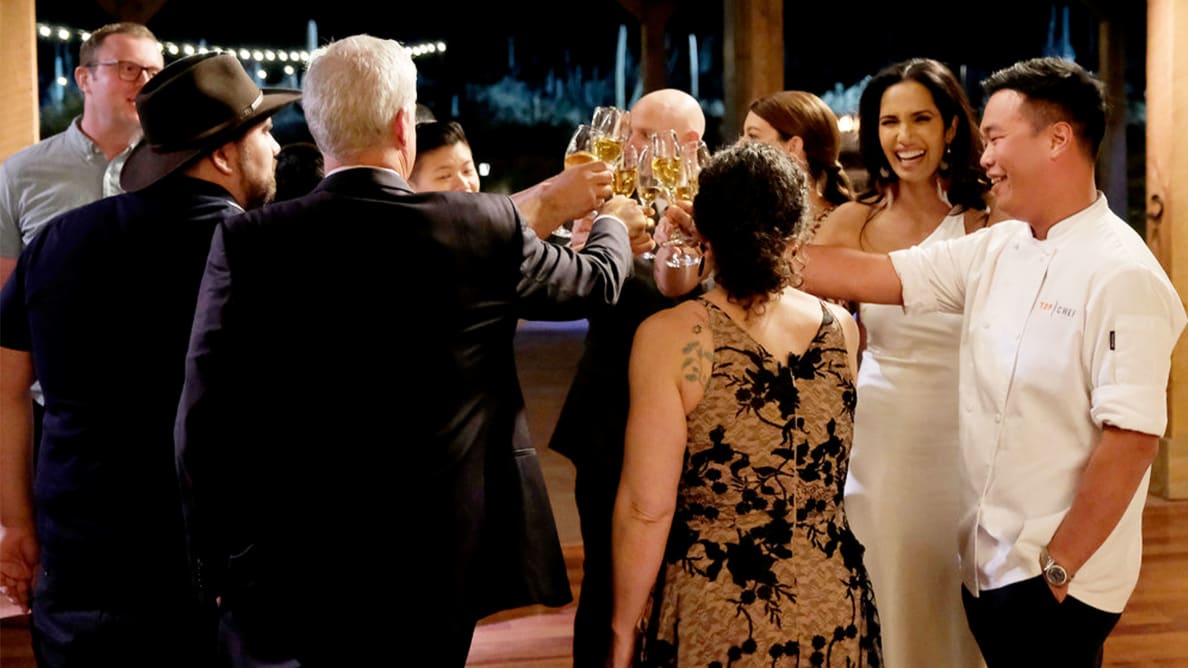
A lot of the chefs who have either won or gotten into the finals of Top Chef have gone on to be guest judges or find other gigs on TV. Do you have ambitions now to have your own TV show or to be a bigger presence in the food TV world?
Yeah, I would love to be able to continue with this. I want to continue to inspire and also teach and educate everyone about what I’ve learned through my career. I’ve spent a lot of time working for great restaurants and great chefs. And as a chef, you want to be able to hand that down, whether it be through people working in my kitchen or watching TV. Hopefully they learn something, because that’s why I have all my skills, just by watching television shows or working in great kitchens. So I love cooking, no matter what. I don’t think I’ll be on a soap opera anytime soon.
Finally, what’s harder: competing on Top Chef or working under Gordon Ramsay?
Damn… Gordon. [Laughs] Gordon was really tough. Gordon was the hardest thing that I’ve ever done. I spent a lot more time away. Top Chef was three months in Season 19, and [when I worked at Restaurant Gordon Ramsay in London] I spent two years away from my girlfriend, who is my wife now. We had just recently gotten a dog, I had this amazing career happening already in Australia and I just threw it all away. And I was getting paid next to nothing. I was working extreme hours and kind of questioning myself, what am I doing here? I never really got to that point on Top Chef, going, what am I doing? Top Chef was a lot more fun. But I owe everything, a lot of my skills, my progression, everything in my career to [Gordon Ramsay’s] kitchen. And if it wasn’t for that kitchen, I probably wouldn’t be where I am now. With that name and that reference on my résumé, that got me into New York, and then that’s how I got on Top Chef. So without Gordon, I wouldn’t be here. And look, I’m not saying Top Chef isn’t hard. Top Chef was extremely hard, but there were no cameras on me in 2014 when I was working for Gordon.
Source - DAILY BEAST




